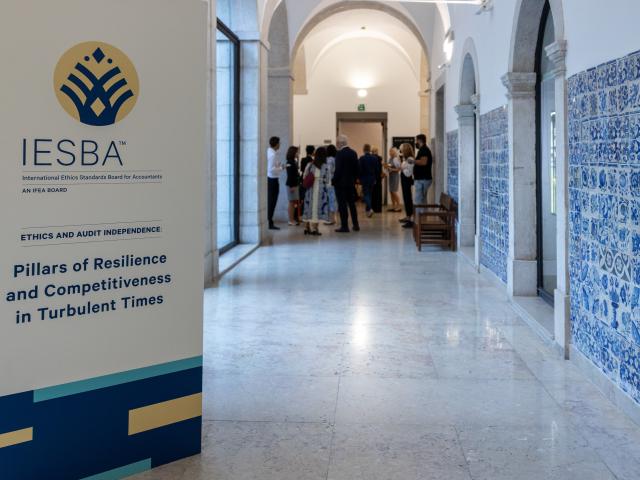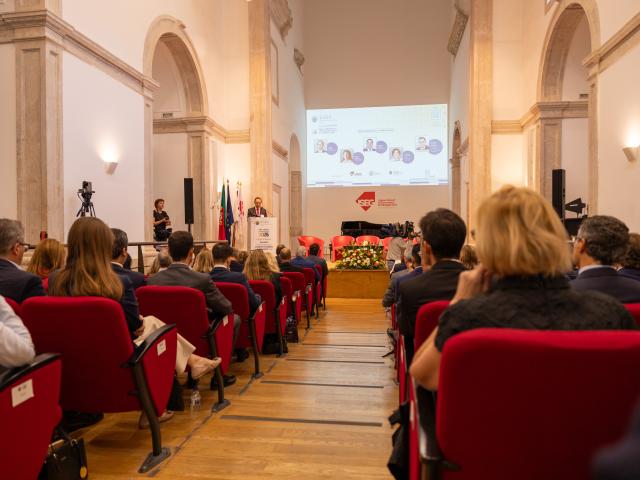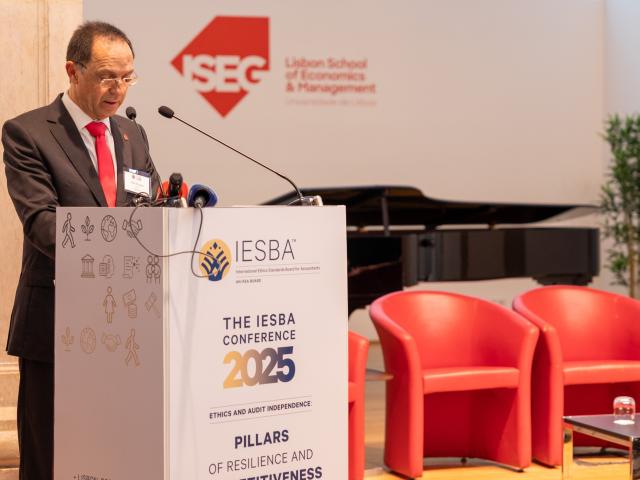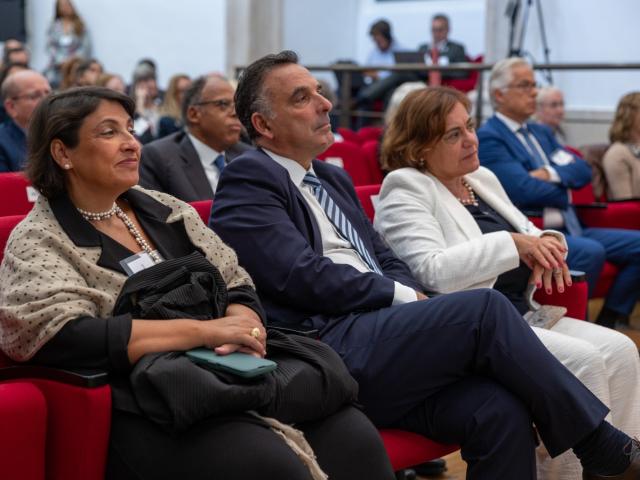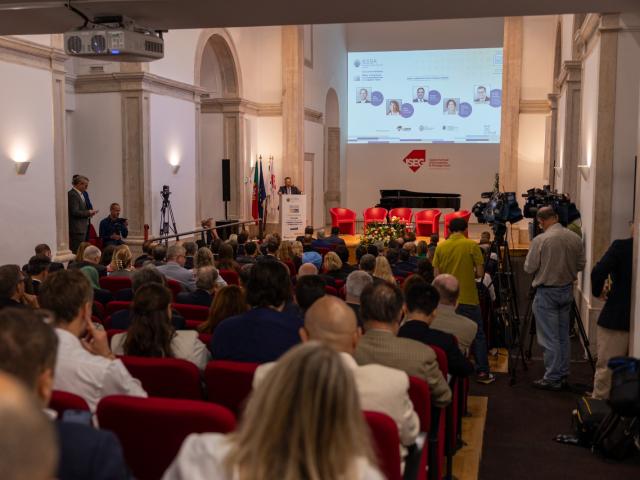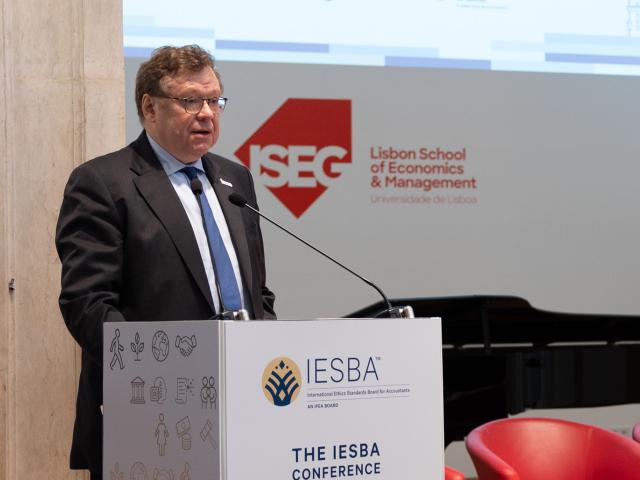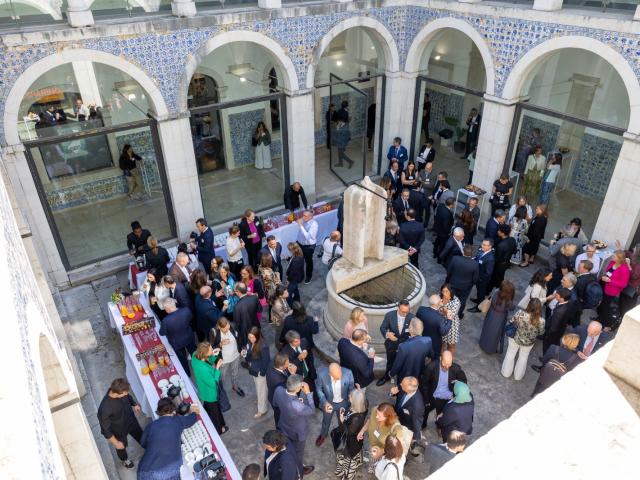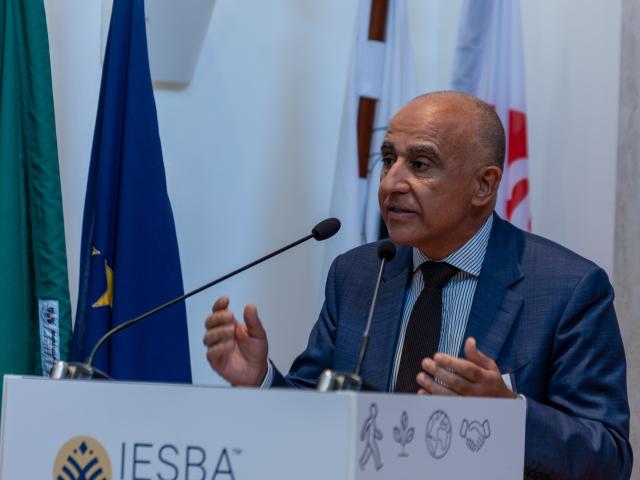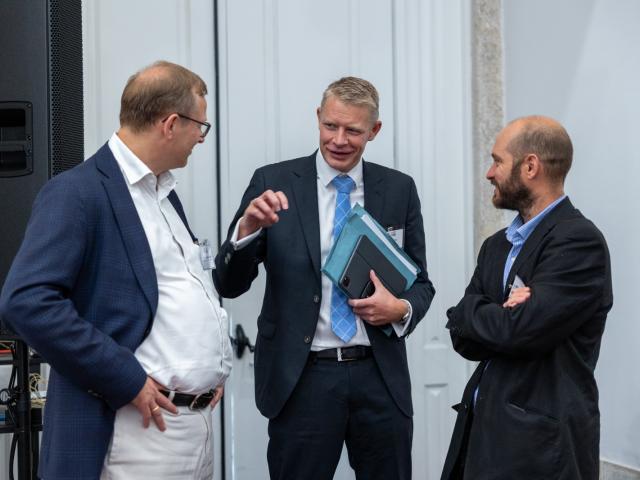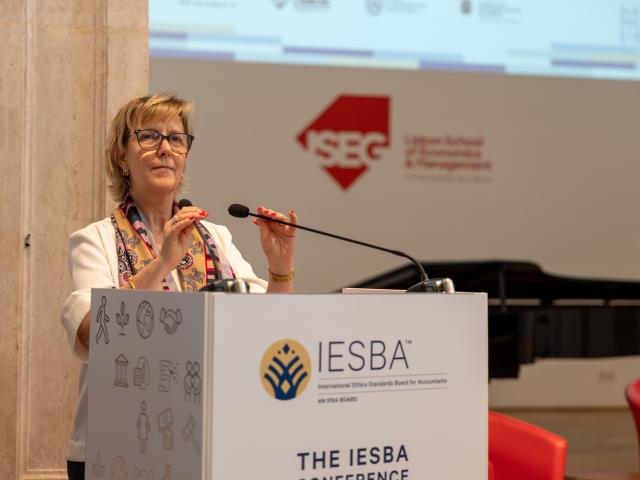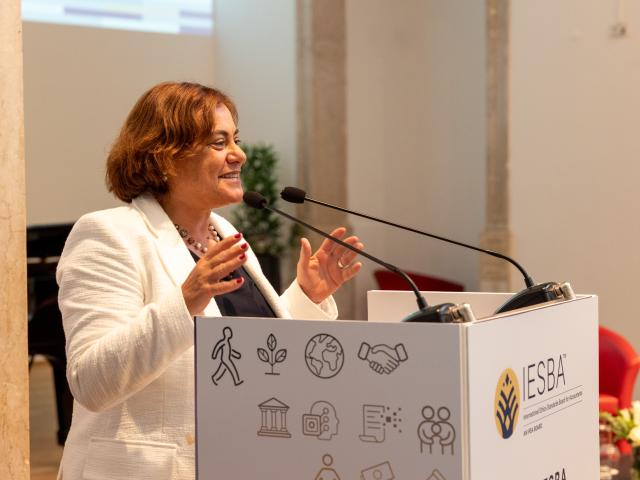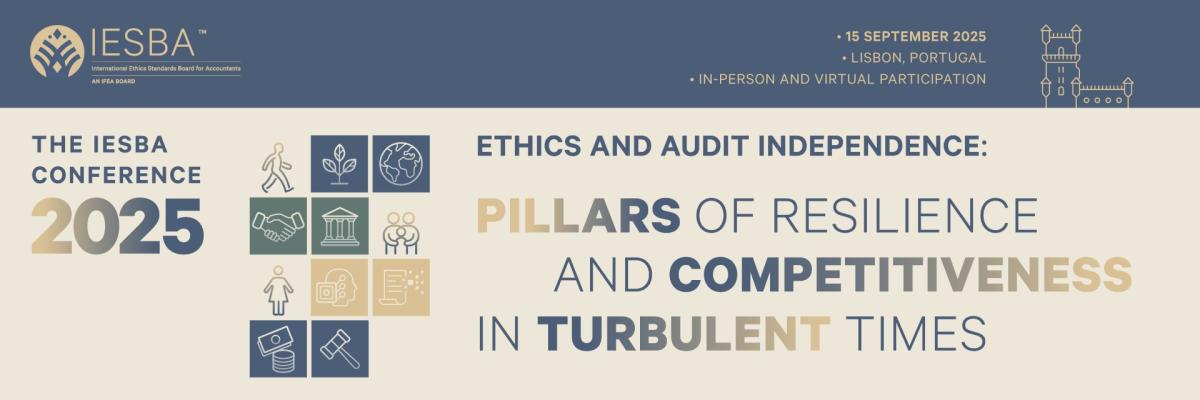
-
The IESBA Ethics and Independence Conference 2025, Lisbon PT, September 15, 2025
-
Attendees Listen to Opening Remarks at the IESBA Ethics and Independence Conference 2025
-
Remarks by ISEG President João Duque at the IESBA Conference 2025
-
OCC President Paula Franco, OROC President Virgilio Macedo, and IESBA Chair Gabriela Figueiredo Dias at the IESBA Conference
February 20, 2026 -
OROC President Virgílio Macedo Addresses the IESBA Conference
-
IOSCO Chair Jean Paul Servais Addresses the IESBA Conference
-
Attendees Gather at the IESBA Ethics and Independence Conference 2025
-
CMVM Chair Luís Laginha de Sousa Chair Addresses the IESBA Conference
-
Attendees and Speakers Gather at IESBA Ethics and Independence Conference 2025
-
European Commissioner Maria Luís Albuquerque Addresses the IESBA Conference 2025
-
IESBA Chair Gabriela Figueiredo Dias Addresses the IESBA Conference
15 September 2025 | Lisbon, Portugal | In-Person and Virtual Participation
The IESBA extends a sincere thank you to all who participated in the 2025 Ethics & Independence Conference, both in Lisbon and virtually. Your engagement made this inaugural event a true exchange of ideas on how ethics and independence can strengthen resilience, trust, and competitiveness in today’s global markets.
Throughout the day, speakers and participants explored the pressures facing organizations today: regulatory pushback, accelerating technology, and evolving expectations of transparency and accountability. Against this backdrop, discussions highlighted how ethics and independence remain essential anchors — providing a foundation for trust, a compass for responsible innovation, and a stabilizing force amid uncertainty.
We are grateful to our speakers, moderators, and partners for sharing their expertise, and to the hundreds of participants from around the world who joined the discussions.
Stay connected with the IESBA as we continue advancing the global ethics and independence agenda. Recordings and highlights from the conference will be made available on this page soon.
Event Schedule
The IESBA Ethics and Independence Conference 2025 was held at the ISEG – Lisbon School of Economics and Management Campus
9:00 | Opening Session
9:40 | Morning Keynote Speech
10:00 | Ethics in a World of Regulatory Shifts and Market Transformation
As social, economic, and regulatory expectations evolve, organizations and decision-makers face growing complexity. In sustainability reporting and beyond, fragmented approaches, exemptions, and political pushback are increasing around the globe. Similar trends are emerging in tax transparency, corporate disclosure, and the regulation of new technologies. This panel explored how these shifts affect the financial system and the accounting profession, and how ethics and professional judgment can act as stabilizing forces, supporting innovation, public trust, and alignment with the public interest.
Moderator: Alexandra Abreu Loureiro (Brunswick, Partner, Office Head Portugal)
11:05 | Fireside Chat: Trust and Transparency in Capital Markets
Trust is the foundation of capital markets, relying on the integrity and quality of financial and sustainability information to ensure transparency, comparability, and stability. As expectations rise and oversight remains fragmented, ethics plays a critical role in reinforcing market confidence—going beyond compliance to ensure fairness, truthfulness, and accountability. This session focused on how ethics standards and professional judgment by accountants and other information gatekeepers support market integrity, informed investment, and alignment among issuers, investors, and the public.
Moderator: Vincent Huck (Corporate Disclosures and Insurance Asset Risk, Editor)
12:00 | Ethical Culture and Governance – Reinforcing Resilience and Public Trust in Accounting Firms
Trust in financial and non-financial information is the lifeblood of businesses and markets, and it depends heavily on the ethical culture and governance structures of the firms responsible for preparing and auditing it. This panel looked at how firms can embed ethics at their core through leadership, incentives, oversight, and accountability. Moving beyond checklists and compliance, panelists will examine how a strong ethical culture can be a strategic asset, reinforcing trust, strengthening resilience, and enabling firms to thrive under growing scrutiny.
14:10 | 'Decoding Ethics' Podcast: Ethics vs. Innovation? The Future of Technology in Audit and Accounting
Technology, and AI in particular, is transforming how the profession gathers, analyzes, and assures information. But as capabilities grow, so do the ethical stakes. This panel will explore how firms can balance innovation with transparency, accountability, and trust. From algorithm explainability to the evolving nature of professional judgment, panelists examined how ethical leadership can ensure technology strengthens the integrity of the profession, and whether ethics can keep pace with innovation or risks being sidelined in the race for progress.
Moderators: David Wray (IESBA Board Member) and Jeanne Viljoen (IESBA, Principal)
Kick-off Statement: Tom Seidenstein (IAASB, Chair; IFEA, Co-CEO) - Read Mr Seidenstein's Remarks
Panel Discussion
- Maria Axente (Responsible Intelligence, CEO)
- Ian Freeman (KPMG UK, Partner)
- Marc Jeschonneck (E&Y, Global Assurance Digital Leader)
(The full recording of this panel will be shared at a later date, as part of IESBA's new 'Decoding Ethics' Podcast series)
15:00 | The Rise of Private Equity in Accounting: Strategic Partnerships or Increased Risks to Public Interest?
As accounting firms navigate rapid change driven by technology, globalization, talent shortages, and competition, private equity (PE) investment has emerged as a major trend—tripling in 2023 and quadrupling in 2024. This session looked at how PE is reshaping firm ownership and structure, raising new ethical and public interest questions, and what it means for the profession’s future.
Moderator: Ken Siong (IESBA, Program and Senior Director)
Panel Discussion
15:40 | Accountants at a Crossroads: Ethics and the Fight Against Financial Crime
From Panama to Pandora, Glencore to Wirecard, recent scandals have exposed the role professional services can play, knowingly or not, in enabling illicit activity. With an estimated 2–5% of global GDP laundered annually and enforcement fragmented across jurisdictions, the accountancy profession faces a pivotal question: will accountants remain passive participants, or will they assert themselves as ethical gatekeepers of financial integrity? This panel explored how firms and professionals can confront legal grey zones, align incentives with the public interest, and foster cultures that support transparency, accountability, and the courage to speak up.
Moderator: Michele Wood-Tweel FCPA, FCA (CPA Canada, Vice-President Regulatory Affairs)
Kick-off Statement: Luís Laginha de Sousa (CMVM, Chair) - Read Mr. de Sousa's Speech
Panel


